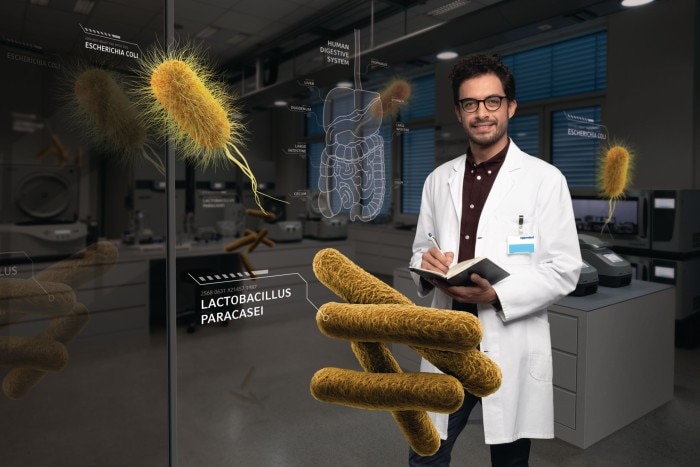MENU
CH | CHF
-
-
-
- Services pour bioprocédés
- Services pour centrifugeuse et rotors
- Services pour Mastercycler
- Services pour automates de pipetage
- Services pour congélateurs
- Services pour incubateurs
- Services pour agitateurs
- Services pour appareils de photométrie
- Service de contrôle de la température et de l’agitation
- Service pour pipette
-
-
-
-
- Services pour bioprocédés
- Services pour centrifugeuse et rotors
- Services pour Mastercycler
- Services pour automates de pipetage
- Services pour congélateurs
- Services pour incubateurs
- Services pour agitateurs
- Services pour appareils de photométrie
- Service de contrôle de la température et de l’agitation
- Service pour pipette
-
CH | CHF
-
- Centrifugeuses de paillasse
- Centrifugeuses au sol
- Centrifugeuses réfrigérées
- Microcentrifugeuses
- Centrifugeuses multi-fonctions
- Centrifugeuses haute vitesse
- Ultracentrifugeuses
- Concentrateur
- Produits IVD
- High-Speed and Ultracentrifuge Consumables
- Tubes de centrifugeuse
- Plaques de centrifugeuse
- Gestion des appareils
- Gestion des échantillons et des informations
-
- Pipetage manuel & distribution
- Pipettes mécaniques
- Pipettes électroniques
- Pipettes multicanaux
- Distributeurs et pipettes à déplacement positif
- Automates de pipetage
- Distributeurs sur flacon
- Auxiliaires de pipetage
- Pointes de pipette
- Consommables d’automatisation
- Accessoires pour pipettes et distributeurs
- Accessoires d’automatisation
- Services pour pipettes et distributeurs
Sorry, we couldn't find anything on our website containing your search term.

How can we age more healthily in the future?
Découvrir les sciences de la vie
- La vie au labo
- Édition génique / CRISPR
- Témoignages
- Santé et médecine
- Histoire
Thanks in part to advances in molecular biology, the human population is living longer. This is obviously great news for us as individuals, but it does create problems and concerns for society. As lifespans increase, more people will develop diseases associated with ageing, such as dementia and cancer.
Lire moins
Over the past 75 years that Eppendorf has been supporting biologists, our understanding of the way humans age has come a long way. We are now able to study how genetic changes within individual cells contribute to ageing and associated diseases. This is leading to more effective treatments, for when things go wrong.
Lire moins
This increased understanding has revealed the important role that the microbiome plays in ageing. The microbiome is composed of all microorganisms – bacteria, fungi, protozoa, and viruses – living in or on the human body. Studies have shown how the microbiome of our intestines changes dramatically during ageing, and that these changes are linked to human health and lifespan.
Lire moins
For example, the gut microbiome is thought to trigger changes in immunity and cognitive function, two key determinants in healthy ageing. Any decline in immune function increases the chance of infections and is thought to increase the chance of cancer. A decline in cognitive function is directly linked to dementia.
Lire moins
Ideally, to live a healthy life for longer we want to be free of disease. New treatments have helped us live longer with diseases such as cancer, however some of the treatments can have debilitating side-effects, reducing quality of life.
Lire moins
So, what are the challenges in finding cures for cancer and dementia in the next 75 years? In cancer, many successful therapies exist and thanks to researchers worldwide the breadth of therapies in continually expanding, for example with new immunotherapies such as CAR-T.
Lire moins
For dementia, the number of approvals for new treatments has been much lower. Alzheimer’s disease, the most common form of dementia, is still not fully understood, but with the advent of new molecular biology techniques, such as single-cell sequencing, our understanding of dementia and cancer should intensify.
Lire moins
As with the last 75 years, we will continue innovating to ensure molecular biologists have access to the most ground-breaking, reliable, and consistent products to give them the best chance of success in their research. And we look forward to continuing to reward this success through the Eppendorf Award for Young European Investigators .
Lire moins
For a quarter of a century, we’ve been supporting research into ageing and other areas of molecular biology through the Eppendorf Award for Young European Investigators in partnership with the journal Nature®. In 2018, Professor Andrea Ablasser was awarded the prize for her work showing how a mechanism involved in the immune response is also activated in ageing cells.
Lire moins

